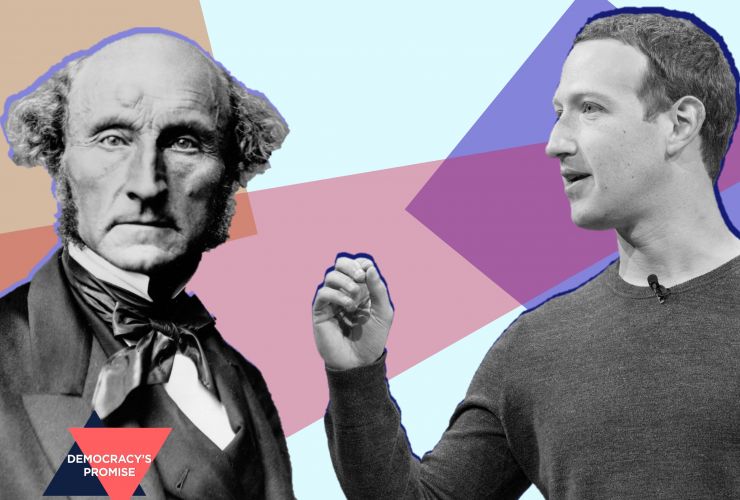
The Boston Review has just launched a special project called “Democracy’s Promise,” which features essays and discussion forums about how to rethink and reinforce democracy in a age when it is facing serious challenges. The lead essay in the project, written by political scientist Henry Farrell and internet security expert Bruce Schneier, is called “Democracy’s Dilemma” and concerns the threat to democracy posed by internet-based information warfare. The authors write: “The open forms of input and exchange that democracy relies on can be weaponized to inject falsehood and misinformation that erode democratic debate.” The essay goes on to offer proposals for strengthening democratic institutions in a way that will undermine the effectiveness of internet-fueled disinformation. Check out an excerpt below.
The Internet seems to be undermining democracy by allowing targeted disinformation, turning public debate into a petri dish for bots and propagandists, and spreading general despair. A new consensus is emerging that democracy is less a resilient political system than a free-fire zone in a broader information war.
This despairing, technologically determinist response is premature. The Arab Spring wasn’t the twilight of dictatorship, yes, but today isn’t the twilight of democracy, either. Still, we agree that to the extent democracy has revealed systemic weaknesses, we should be working overtime to repair them.
To pursue this project of repair, we need a better understanding of democracy’s resiliency in the face of information attacks. Building that understanding is harder than it might seem. Our theories have mostly assumed that democracies are better off when there is less control over information. The central assumption, which owes much to John Stuart Mill and Louis Brandeis, is that the answer to bad speech is more and better speech.
We need new frameworks to understand the limits of this optimistic view. Changes in technology have made speech cheap, and the bad guys have figured out that more speech can be countered with even more bad speech. In this world, the easy flow of information can cause trouble for democracy.
Image: John Stuart Mill and Mark Zuckerberg. Via the Boston Review.